| World Confederation of Education - COMED |
MEETING OF MINISTERS OF EDUCATION OF LATIN AMERICA AND THE CARIBBEAN
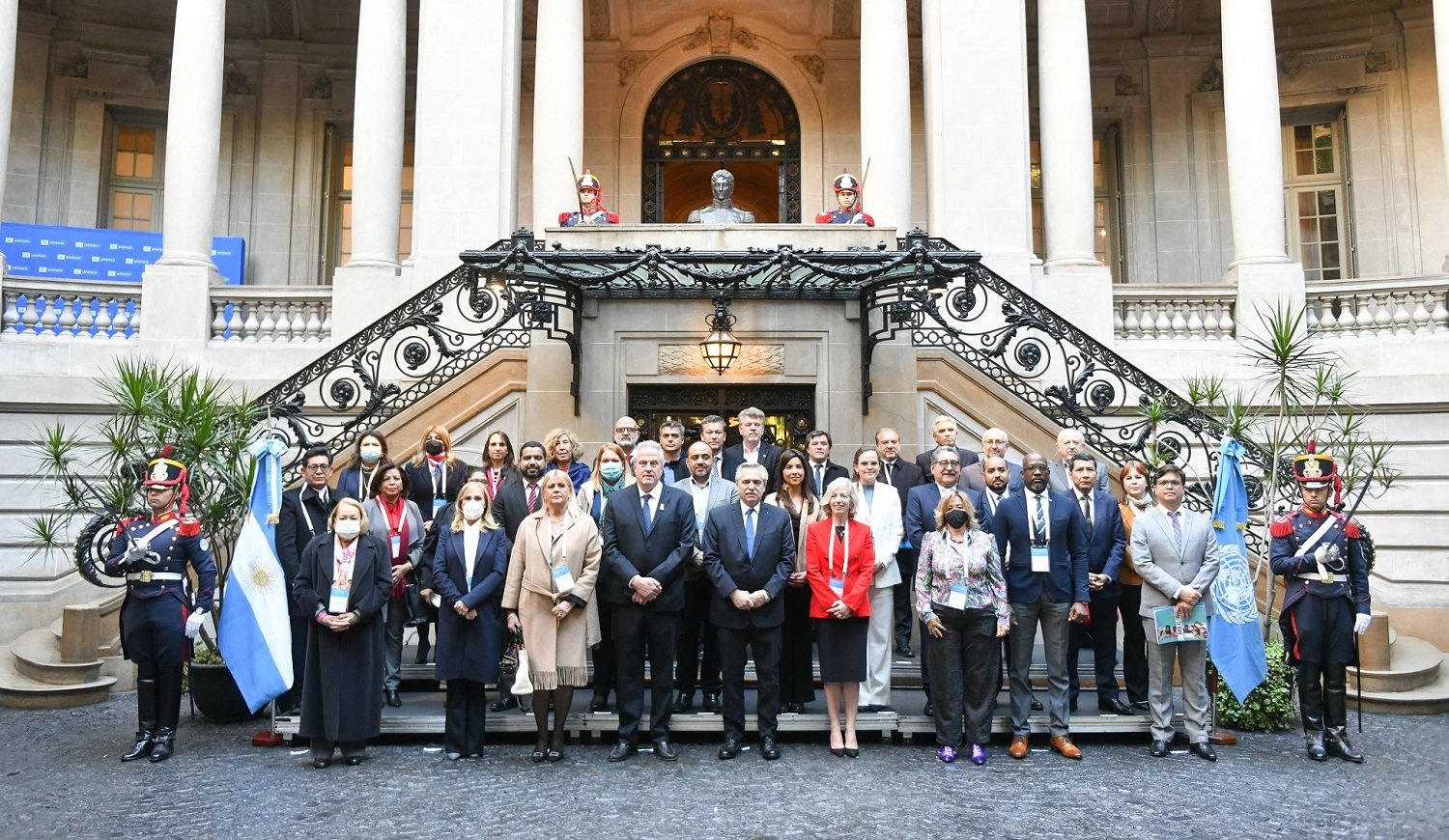
The ministers of education and education authorities of Latin America and the Caribbean attended the meeting organized by UNESCO on May 26 and 27, where they expressed their commitment to the recovery and transformation of their education systems to overcome the greatest education crisis that the region has experienced since records began.
COMED accompanied the activity, supporting its participation in this space for work and dialogue, since the participating countries present are those in which FAELA, regional Federation member of COMED, brings together the main representative entities of colleges and universities in the continent.
The agreements set forth in the Buenos Aires Declaration point out the importance of acting fast and outline the commitments for recovery under principles of solidarity, equity, and educational justice, under a reinforced regional cooperation. They state that it is an ethical imperative to prioritize education and guarantee its adequate financing and political will.
In addition, the conclusions reached are a message from the region for the pre-Summit on the Transformation of Education, to be held in Paris on June 28 and 29, in preparation for the Summit on the Transformation of Education, convened by the Secretary General of the United Nations for September 2022.
We invite those who wish to learn more about the details of the Declaration to access the information published in:
• Official meeting website (in Spanish): Sitio web oficial de la reunión
• Buenos Aires Declaration (in Spanish): Declaración de Buenos Aires
Source: UNESCO
2022, NEW YEAR, NEW CHALLENGES

As a new year begins, the COMED team would like to send seasons’ greetings to all our members, as well as to all those who follow and accompany us worldwide in activities, actions, projects, etc. which aim to continue working towards an inclusive and equitable quality education, in line with the 2030 SDGs -especially the fourth objective-, and to promote lifelong learning opportunities for all.
2022 will demand an analysis and collective reflection on the necessary transformations that educational institutions must undergo to achieve these objectives, as the impact of the global crisis caused by the pandemic added to the historical barriers, challenges and opportunities faced by Latin America and the Caribbean in terms of inclusion.
Therefore, in order to continue growing together, it is of utmost importance to engage in a continuous process to improve access, learning and participation of all social groups with equal opportunities, as proposed by UNESCO.
“To educate is to teach how to learn to learn, to undertake and to innovate in a timely manner throughout life, in a process that holds for each person the best average of the moments of which earthly life is made”.
Together with our President, Prof. Dr. Edgardo N. De Vincenzi and the entire COMED Team, we hope this 2022 finds us once again working synergistically.
We wish you a very Happy New Year!
SERIES OF THREE WEBINARS ON CHALLENGES OF INCLUSION IN HIGHER EDUCATION
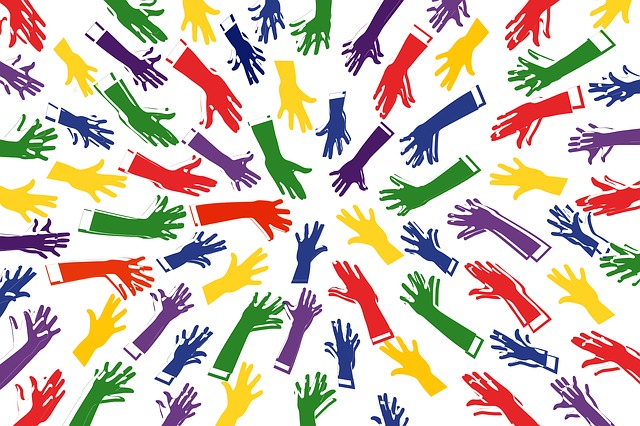
From COMED we want to share the invitation of UNESCO IESALC for the cycle of three webinars on inclusion challenges in higher education. Its purpose is ¨to promote analysis and shared reflection on the transformations that university institutions must undergo in order to achieve the Sustainable Development Goal 4 of the 2030 Agenda: Ensure inclusive and equitable quality education, and promote lifelong learning opportunities for all.¨
In the webinars, experts and interested groups will identify the main barriers, challenges and opportunities in Latin America and the Caribbean in terms of university inclusion. They will also share significant experiences, such as good practices for overcoming the challenges that inclusion presents as a continuous process linked to access, learning and participation of all social groups in equal opportunities.
To register for any of the three webinars, access the following link: HERE
Source: UNESCO-IESALC
Non-Formal Education, Sustainable Development, and the Education 2030 Agenda.
The World Confederation of Education (COMED), chaired by Dr. Edgardo Néstor De Vincenzi, participated in the webinar: "How do organizations and groups within civil society contribute to the implementation of the Education 2030 Agenda?”
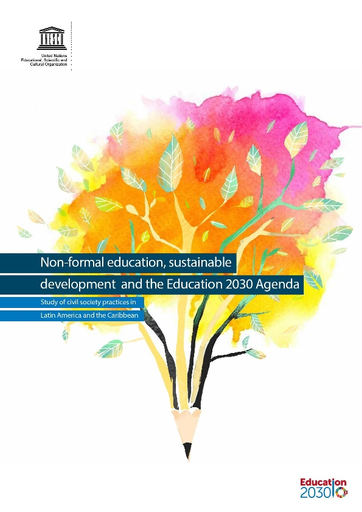
UNESCO / Fundación SES / Mariangel Díaz Ortigoza / GRAMAX Digital
JIt was organized by the United Nations Educational, Scientific and Cultural Organization (UNESCO) and took place last Tuesday, February 23rd via Zoom. Its main objective was Non-formal education, sustainable development and the Education 2030 Agenda: study of civil society practices in Latin America and the Caribbean.
Thus, the presentation focused on showcasing the findings, experiences, lessons learned and challenges resulting from the 27 initiatives that are being carried out by organizations in Panama, Peru, Paraguay, Colombia, Uruguay, Venezuela, Mexico, Guatemala, Argentina, Jamaica, the Dominican Republic, and Chile towards the dimensions of target 4.7 of SDG4 (sustainable development).
Moreover, it was an opportunity to share the recommendations that the participating organizations made to UNESCO to strengthen the efforts of the Member States in meeting Target 4.7 of SDG4. In addition to it, there was a moment to share the challenges and opportunities to advance towards the fulfilment of Target 4.7 of SDG4 in Latin America and the Caribbean identified by the Organizations who participate in the study; as well as to. reflect on the role of civil society organizations in the development of the Education 2030 Agenda in Latin America and the Caribbean.
“An avant-garde education must aim at forming civically capable personalities in the exercise of their sovereign role. The State and the Nation must prioritize education as the axis of change and development of the human being and of society", Dr. De Vincenzi summarized.
Those who wish to see the recording of the webinar can do it at:
Webinar: How do civil society organizations contribute to the implementation of the E2030 Agenda – YouTube
Those who wish to access the document discussed in the webinar, can do it at:
Non-formal education, sustainable development, and the 2030 Education Agenda: study of civil society practices in Latin America and the Caribbean - UNESCO Digital Library
10th Annual World College Radio Day 2020 – “Global Solidarity Rocks”
Despite the severe disruptions of the COVID-19 pandemic, college radio stations around the world are coming together to celebrate the important medium of college radio. On October 2nd, the legendary 24-hr World College Radio Day (WCRD) Global Marathon will take place. Here you will hear 515 radio stations in 31 countries and 6 continents.
This year theme is “Global Solidarity Rocks” because the world is in dire need of the kind of solidarity that one’s experience in college radio each year working with the worldwide partners.
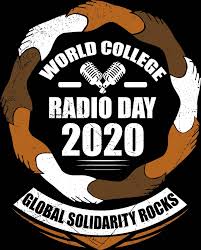
Joined in a broadcasting marathon selected stations will take turns providing our listeners with amazing radio shows. Among the selected stations, there are college radios belonging to COMED member institutions.
The WCRD marathon is open for all college radio stations around the globe and COMED supports this event and congratulates all the college radio stations selected to participate in it. COMED also invites you to listen to the marathon on October 2nd, the day college radio comes together.
COMED INVITES TO PARTICIPATE ON THE GLOBAL SURVEY ¨ETHICS OF ARTIFICIAL INTELLIGENCE¨
 |
UNESCO has embarked on a two-year process to elaborate the first global standard-setting instrument on the ethics of artificial intelligence in the form of a Recommendation and from COMED we invite all those interested in participating in it.
The UNESCO Recommendation is expected to define shared values and principles, and identify concrete policy measures on the ethics of artificial intelligence (AI).
The purpose of this questionnaire is to collect feedback on the first draft of the Recommendation.
Your participation will help enrich the draft Recommendation with your views about how AI could be beneficial or detrimental for society.
Deadline: 31 July 2020.
• For more information: https://en.unesco.org/artificial-intelligence/ethics
• To participate on the survey, please visit this web site:https://survey.unesco.org/2020/index.php?r=survey/index&sid=661611&lang=en
• Questions and doubts: ai-ethics@unesco.org
Source: UNESCO’s World Commission on the Ethics of Scientific Knowledge and Technology (COMEST).
FIND A “REALISTIC OPTIMISM” TO FACE THE CRISIS
 |
We are facing an unprecedented situation in the world, where a new virus puts in check the inertia in which societies moved. The Coronavirus Pandemic COVID - 19 and the obligatory confinement, not only confronted us face to face with finiteness - taboo that the human being hides daily for survival - but it forces us to transform the Crisis into Creative Opportunity.
This unique and uncertain situation can make the paranoid spectrum, that toxic personality of persecutory delirium, of permanent mistrust, roam in each of us. This is not a good time to make excuses. Life are moments that we spend, use and manage. It is up to us to take advantage of crises; since it is in them and in the diversity where the capable ones emerge.
And how do you deal with this situation? with Education seeking a “realistic optimism”, since we cannot change the facts, but we can take attitudes to face the problem and do our best. Who is not trained to be able to create, innovate and be resilient? This person is a socially disabled person.
You must find good averages in the crisis, because nobody is a robot, a perfect machine. Everything is an average: the medium is an average; the people are an average and the links are an average. And to overcome that robot perfection, you must be creative.
An Avant-grade Education must focus on training civically qualified personalities in the exercise of their sovereign rule. The State and the Nation must prioritize Education as the axis of change and development of the human being and of society.
For all that is expressed here and in light of the decisions that have been made and will continue to be made at the local, regional and global levels to cope with this situation of pandemic and crisis, it is essential to value the Policy; since it is the drivers of the nations who will take the helm to get us out of this situation. The future will be bright if we can train political leaders, ethically, morally and professionally, so that they can lead the changes that lead our society to become more and more empowered.
The humanitarian crisis that the Coronavirus COVID-19 has put us in is an opportunity for resilience. Let's not waste it.
Prof. Dr. Edgardo Néstor De Vincenzi
President of World Confederation of Education -COMED-
WITH ONE OF FIVE PRIVATE STUDENT KEPT OUT OF SCHOOL, UNESCO MOBILIZES EDUCATION MINISTERS TO FACE THE COVID-19 CRISIS
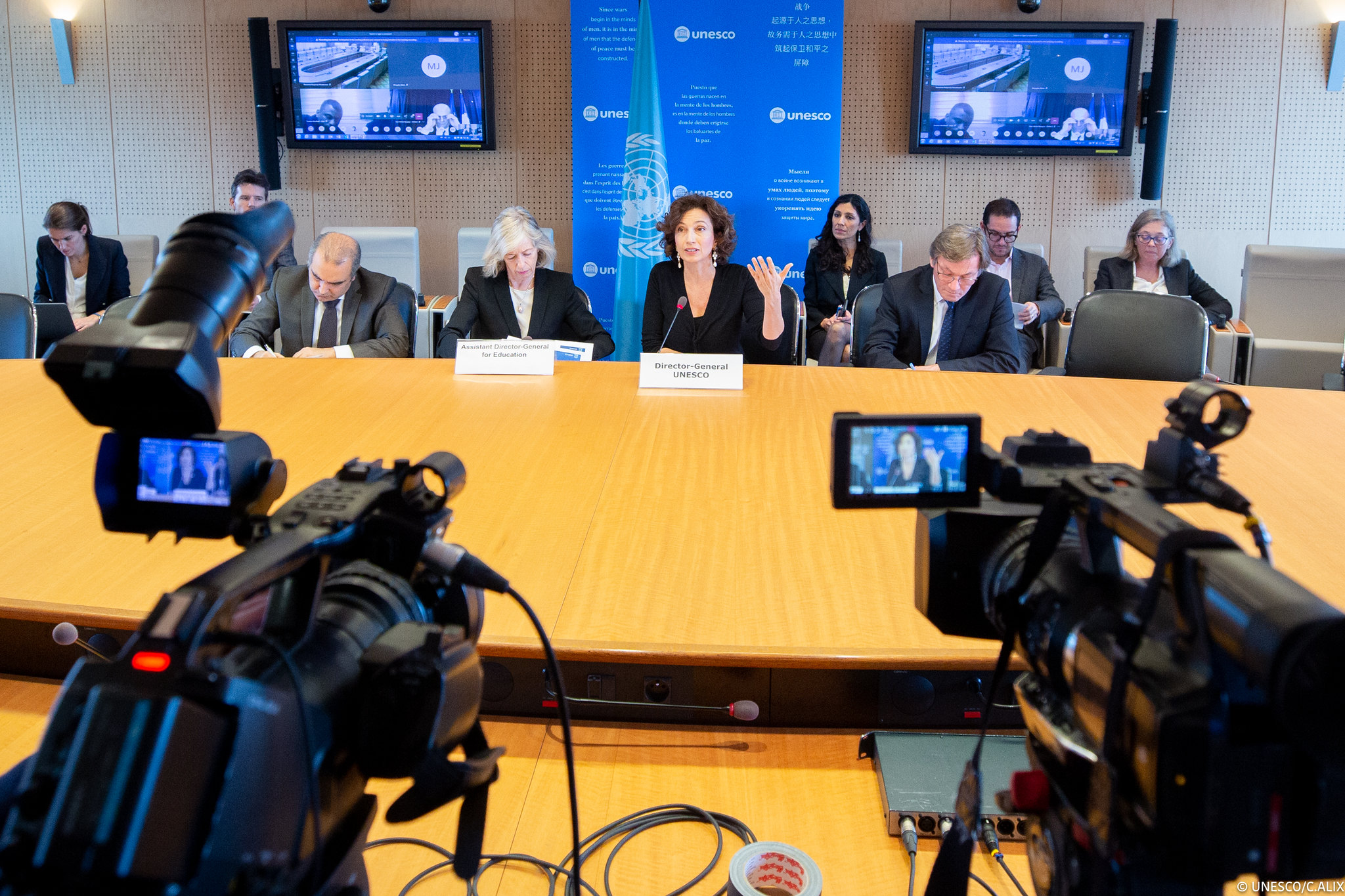 |
In response to a surge in school and university closures to contain the spread of COVID-19, UNESCO on Tuesday convened a global videoconference of high education officials to step up the emergency response and share strategies to minimize learning disruption worldwide. Seventy-three countries were represented including 24 education ministers and 15 vice ministers.
According to data released today by UNESCO, the crisis is now impacting close to 363 million learners worldwide, from the pre-primary to tertiary level, including 57.8 million students in higher education. One in five students worldwide is staying away from school due to the COVID-19 crisis and an additional one in four is being kept out of higher education establishments.
“We are entering uncharted territory and working with countries to find hi-tech, low-tech and no-tech solutions to assure the continuity of learning,” said UNESCO Director-General Audrey Azoulay.
If you want to continue reading this news, follow the source below.
Source: UNESCO
CORONAVIRUS: A THREAT TO THE INTERNATIONALISATION OF HIGHER EDUCATION?
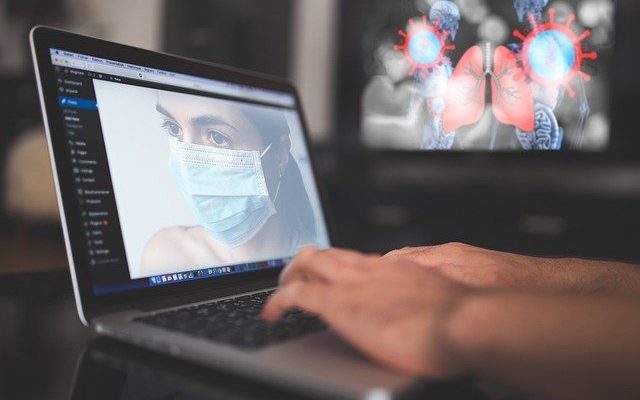 |
First in China, later in other parts of Asia and now increasingly everywhere in the world, the Coronavirus is affecting public life. It also impacts on higher education in general and on internationalisation in particular.
Chinese higher education, especially in Wuhan and the Hubei province, is functioning in slow motion. Whole campuses have been shut down, labs are often not accessible, in-class teaching is rare. This applies also to branch campuses of European or American universities. Attempts to compensate for lack of face-to-face instruction have seemingly given a boost to online education. Given the fears about the virus, China’s self-set target to attract 500,000 foreign students to the country might not be reachable so soon. It is expected that student flows in the near future might be partly diverted away from China to other (Asian) destination countries.
Countries such as Australia and New Zealand, with a high inflow of Chinese students, are worried. Australia has 153,000 Chinese students enrolled at its universities. About 100,000 of those are now stuck in China.
Source: ACA Newsletter
OEI AND UNESCO-IESALC SIGN A COLLABORATION AGREEMENT TO PROMOTE HIGHER EDUCATION IN IBERO-AMERICA.
 |
Habana (Cuba), February 11, 2020 – The Organization of Ibero-American States for Education, Science and Culture (OEI) and the UNESCO International Institute for Higher Education in Latin America and the Caribbean (UNESCO-IESALC) today signed an agreement in Havana to collaborate in the construction of the Ibero-American Knowledge Space, in line with the generation of educational opportunities throughout life and for all promoted by the Framework of Action of the Sustainable Development Goals (SDG) 2030 and, specifically, the SDG4.
More Information: Click Here
Questions: Eva Mateo Asolas: emateo@oei.es / (+34) 696 40 18 21
Source: UNESCO-IESALC, Caracas, Venezuela.
23 countries adopted the new Regional Convention on the Recognition of Studies, Degrees and Diplomas in Higher Education in LAC.
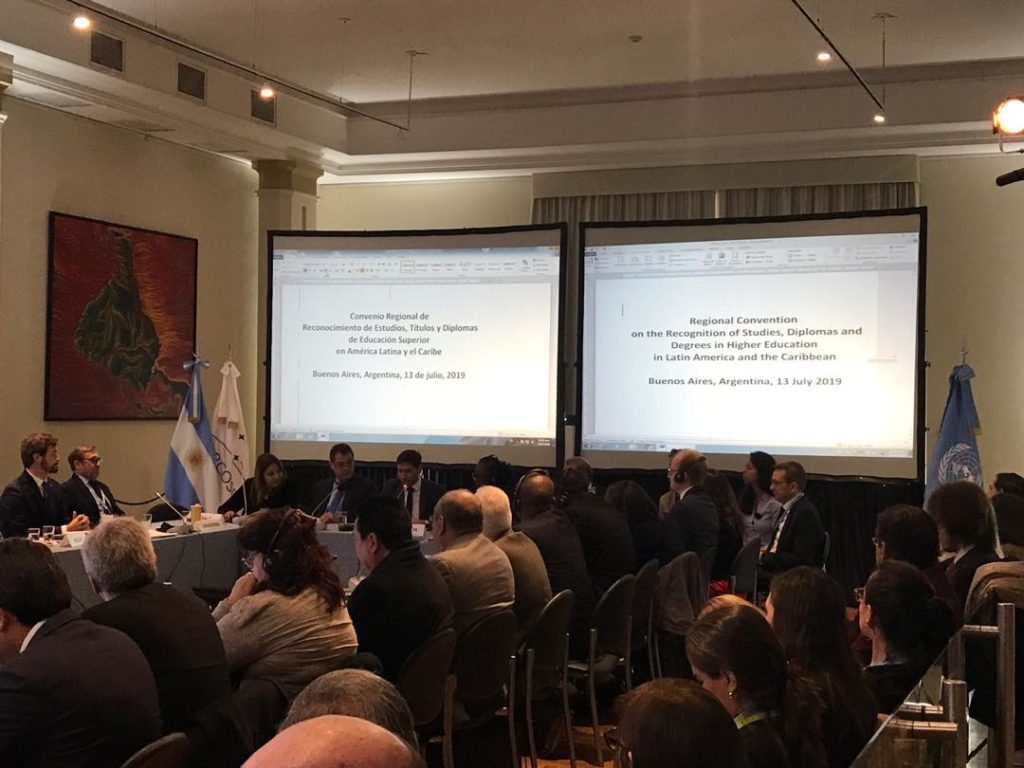 |
| Closure of the International Conference of States held in Buenos Aires, Argentina. |
Government representatives from 23 countries of Latin America and the Caribbean met at the International Conference of States during three days, for the final revision of the proposed text of the new Convention for the Recognition of Studies, Degrees and Diplomas in Higher Education in Latin America and the Caribbean.
The Conference began on July 11, 2019 at the San Martin Palace in Buenos Aires, Argentina. The government of Argentina was in charge of the Conference’s presidency, while the vice-presidency fell upon Jamaica and El Salvador. Organized by the UNESCO International Institute for Higher Education in Latin America and the Caribbean (IESALC), with the support of the Argentine government, the Conference gives closure to the Convention’s modernization process, led since 2015 by the Institute, and which consisted of working sessions and intergovernmental consultation meetings around the original text.
This instrument commits the signatory States Parties to adopt all necessary measures to recognize the studies, degrees and diplomas of the countries of Latin America and the Caribbean according to the terms contained in the new Convention, and by virtue of the specific regulations that govern in each one of them.
This political commitment will promote academic mobility in the region, with its positive impacts on both intraregional cooperation and on the much sought after regional integration. Its implementation, once adopted and ratified by the States Parties, will significantly contribute to safeguarding the right to education, inclusion and the pursuit of the Sustainable Development Goal 4 agenda and its commitment “leave no one behind».
More Information: Click Here
| Source: IESALC/UNESCO |
Francesc Pedró is IESALC’s newly appointed Director.
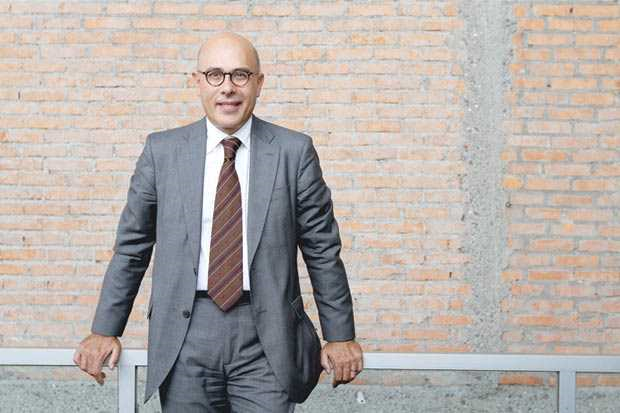 |
| Francesc Pedró has been, since the year 2011, Chief of Section of Education Policy at the Division for Policies and Lifelong Learning Systems of the UNESCO Education Sector in Paris. |
The UNESCO International Institute for Higher Education in Latin America and the Caribbean (UNESCO-IESALC) is pleased to announce to government and university authorities, national and international institutes, and to the academic community at large, the official appointment, since May 20 2019, of Dr. Francesc Pedró as its new Director.
Dr. Pedró has been, since 2011, Chief of Section of Education Policy at the Division for Policies and Lifelong Learning Systems of the UNESCO Education Sector in Paris. Along with his team, Pedró has conducted educational policy evaluations in Latin America and the Caribbean, in particular in the Bahamas, Guatemala, Honduras, Peru, and St. Kitts and Nevis. He has also contributed to the reinforcement of the work of the Education Sector regarding the right to education and the use of technology, including the launch of UNESCO’s Mobile Learning Week in 2012.
With degrees in Philosophy and in Education from the Universidad Autónoma de Barcelona (1981), and a PhD in Compared Education from the Universidad Nacional de Educación a Distancia, in Madrid (UNED, 1985), Pedró also holds a post-doctorate in Public Policies of Education from the Institute of Education of London University (1986).
More Information: Click Here
| Source: IESALC/UNESCO |
XIII World Education Congress.
On October 10th and 11th, 2019, at the Montclair State University, in New Jersey, United States, will be held the XIII World Congress of Education, organized by the World Confederation of Education (COMED) and Montclair State University.
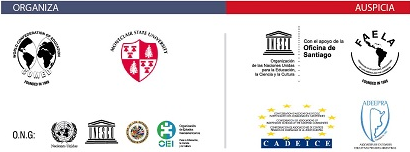 |
The World Confederation of Education (COMED), an NGO with permanent cooperation with UNESCO. Since its origins, it looks forward to develop an education that ensures social inclusion and democratization of education, promotes the pursuit of quality education for all the citizens of the world, through a pedagogical proposal of personalized education.
In line with UNESCO’s proposals in the New Global Agenda for Sustainable Development 2030 –especially with Objective 4, which refers to ‘Quality Education: to guarantee an inclusive, equitable and quality education and promote lifelong learning opportunities for all’— the Conference will be dealing with this issue, along with promoting a ‘Education in the Digital Age: Opportunities and Challenges’ and the main presentation of PhD Edgardo N. De Vincenzi: ‘Encouraging the humanization of education before the automation of routine professions’. The central topics that will be addressed are the following:
- Technology and Education.
- Diversity and Inclusion.
- Education Policy.
- Internationalization of Education and its Impact.
Mobility and Academic Recognition on the agenda of the VIII Meeting of REALCUP
On September 2nd and 3rd, 2019, at the headquarters of the La Salle University of Mexico took place the VIII annual meeting of the Red de Asociaciones Latinoamericanas y Caribeñas de Universidades Privadas (REALCUP), attended by representatives of private institutions of higher education in 12 countries of the Region.
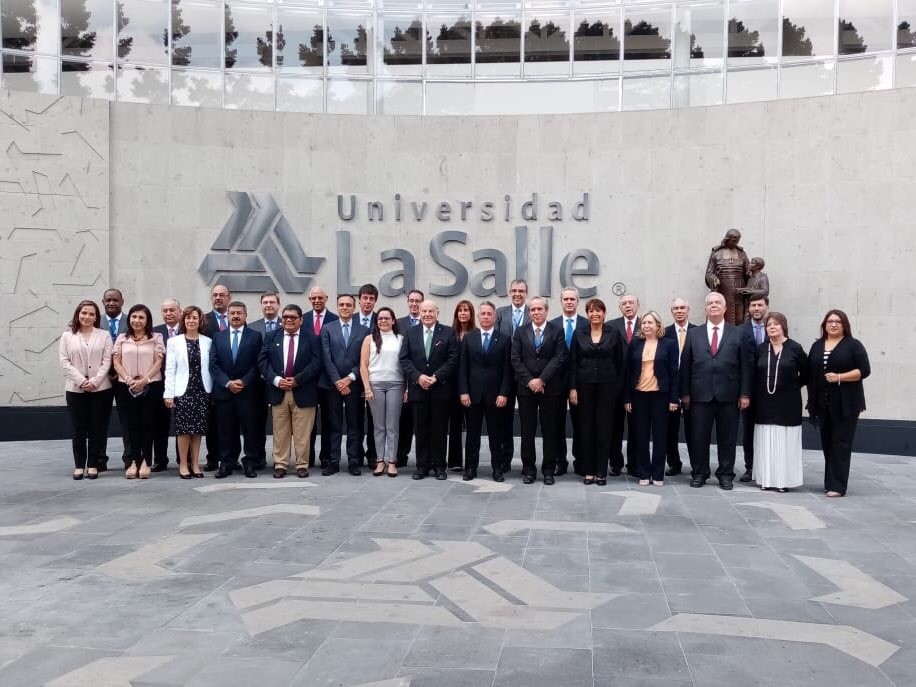 |
The opening ceremony was in charge of the general director of the Technological National of Mexico, Enrique Fernández, on behalf of the undersecretary of higher education of Mexico, Francisco Luciano Concheiro Bórquez; the president of the Federation of Mexican Institutions of Higher Education (FIMPES), Emilio José Baños Ardavin; the president of REALCUP, Héctor Sauret and, the rector of La Salle University, Enrique González Álvarez.
The representatives of the affiliated associations submitted their respective reports. This is how the president of the Council of Rectors of the Argentine Private Universities (CRUP), in the spokesperson of its president Rodolfo Néstor De Vincenzi, said that 23% of Argentine universities are private and 77% are state-owned. However, the numbers of graduates are 34% and 66%, respectively. For his part, Luis Lescano Sáenz, in his capacity as general manager of the FIPES (Federation of Private Institutions of Higher Education of Peru), in tune with the figures that demonstrate the growing importance of the private sector in Higher Education systems in the Region added that 33% of Peruvian students are enrolled in the private sector.
In general, the information presented by the associations affiliated with REALCUP show activities and contributions that enrich the Higher Education from the private sector. This is the case of the Association of Private Universities of Panama (AUPPA) that groups fifteen (15) affiliated institutions and that, on its own, created a research institute under its shelter to complement and enrich the national statistics that are compiled in education, in an effort to have a greater understanding of its impact on Panamanian higher education as a whole.
To read the whole news in Spanish: Click Here
| Source: IESALC/UNESCO |
COUNCIL MANAGEMENT
PRESIDENT
Dr. Edgardo N. De Vincenzi
Argentina
- CV - Prof. Dr. Edgardo
N. De Vincenzi
- CV (brief version) - Prof. Dr.
Edgardo N. De Vincenzi
EUROPEAN VICEPRESIDENT
Dr. Jesús Núñez Velázquez
Spain
TO GUARANTEE THE ACHIEVEMENT OF THESE OBJECTIVES, THE FEDERATION SHALL:
1. Sponsor meetings, workshops, congresses, conferences, symposia and many other academic activities related to educational issues and the realization of its objectives.
2. Make public its purposes and accomplishments through the distribution of bulletins and the diffusion of educational and cultural materials.
3. Foster the exchange of educational administrators, institutions, teachers, and students among countries, in order to carry out studies and research aimed to strengthening international integration.
4. Support agreements on behalf of the Federation's objectives between its members and any other national, regional or international organization of similar nature.
5. Maintain solidarity with existing or yet-to-be-created organizations with similar objectives, as well as with international organizations, by sponsoring and holding the necessary meetings to achieve the designs set forth in these by-laws.
6. Promote the creation of educational or cultural institutions which aim to the achievement of these purposes.
7. Promote the exchange of knowledge and skills, plans and programs, methodologies, technologies and educational experiences in general, as well as the exchange of rules and regulations concerning these items, by providing proposals and information to national education systems.
8. Support, publish, and implement prevention and public-service campaigns connected to the issues of education and culture.